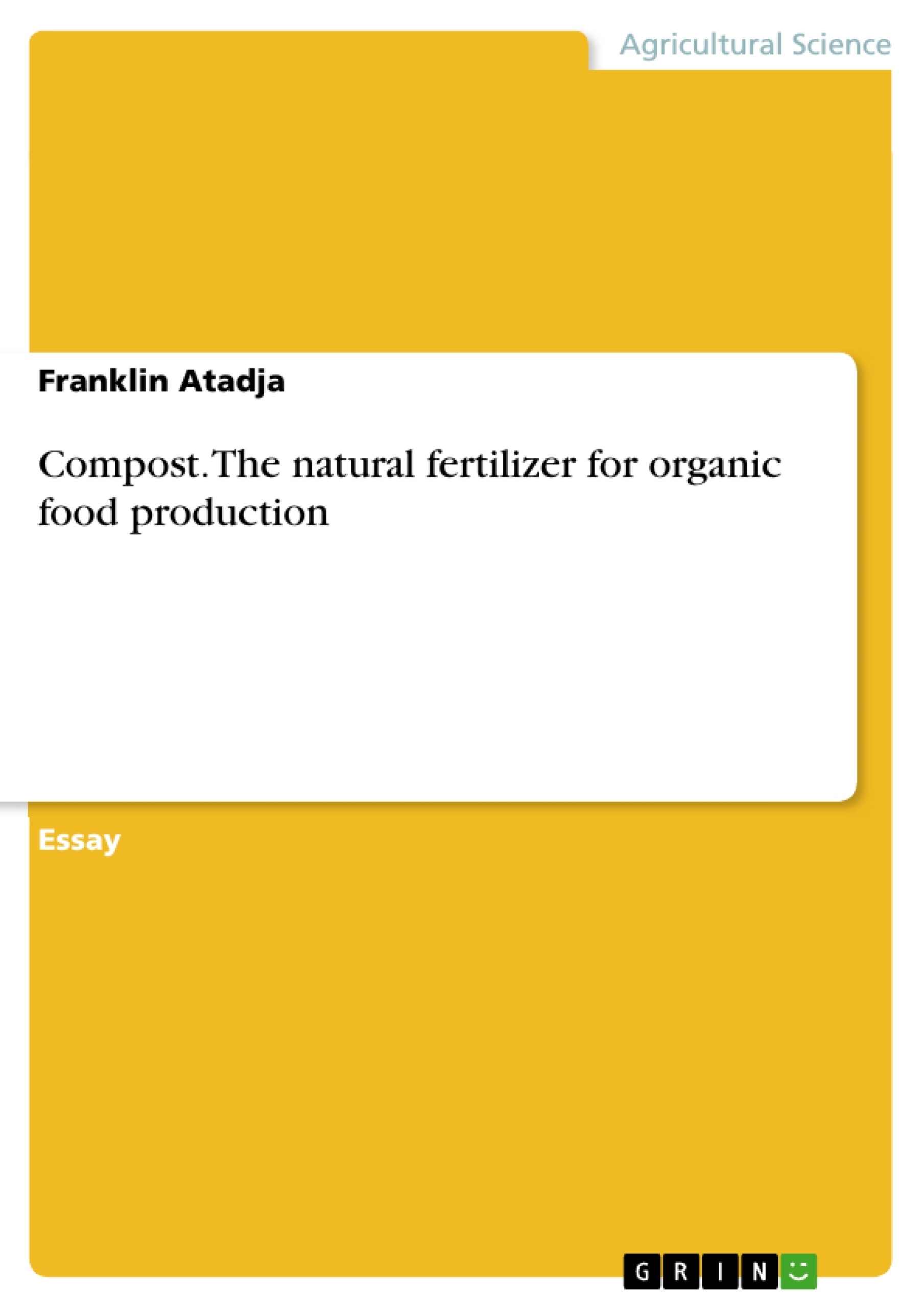The goal for a sustainable agriculture is generally accepted and agreed upon worldwide. However, the progress and process remain difficult to define. Agricultural sustainability measures the relation of organic agricultural production to chemical production in many communities around the world. The move to organic agricultural production is an important step towards a more sustainable global agriculture.
This paper argues that organic food production can be enhanced by using a low-cost, organic fertilizer: compost. It advises on the creation and advantages of home-made compost piles, which improve soil structure, texture, aeration, and support the soil's water holding capacity. Composting thus contributes to the growth of healthier plants, which are more naturally resistant to diseases, insects, and pests, and can therefore be considered a real alternative to chemically grown plants.
Table of Contents
- Compost the Natural Fertilizer for Organic Food Production
- Introduction
- The Need for Sustainable Agriculture
- Organic Food Production and Consumer Demand
- Composting: A Sustainable Solution
- The Importance of Compost
- Compost Pile Construction
- Compost Pile Maintenance
- Benefits of Compost
Objectives and Key Themes
This work explores the significance of compost as a natural fertilizer for organic food production, emphasizing its role in promoting sustainable agriculture and addressing the growing global demand for healthy and environmentally friendly food sources.
- Sustainable Agriculture
- Organic Food Production
- Consumer Demand for Organic Foods
- Composting Process and Techniques
- Benefits of Compost for Soil Health and Plant Growth
Chapter Summaries
- Introduction: This chapter introduces the global context of food production and consumption, highlighting the need for sustainable agricultural practices. It explores the growing demand for organic foods and the factors driving consumer preferences for these products.
- Composting: A Sustainable Solution: This chapter delves into the process of composting, outlining its importance in creating a natural and effective fertilizer. It provides detailed instructions on constructing and maintaining compost piles, emphasizing the key factors influencing successful decomposition.
- Benefits of Compost for Soil Health and Plant Growth: This chapter explores the numerous benefits of using compost in soil, including its ability to improve soil structure, fertility, and water retention. It highlights the positive impact of compost on plant health and its contribution to sustainable food production.
Keywords
Sustainable agriculture, organic food production, compost, natural fertilizer, soil health, plant growth, consumer demand, composting techniques, environmental sustainability.
- Quote paper
- Franklin Atadja (Author), 2015, Compost. The natural fertilizer for organic food production, Munich, GRIN Verlag, https://www.grin.com/document/349714




